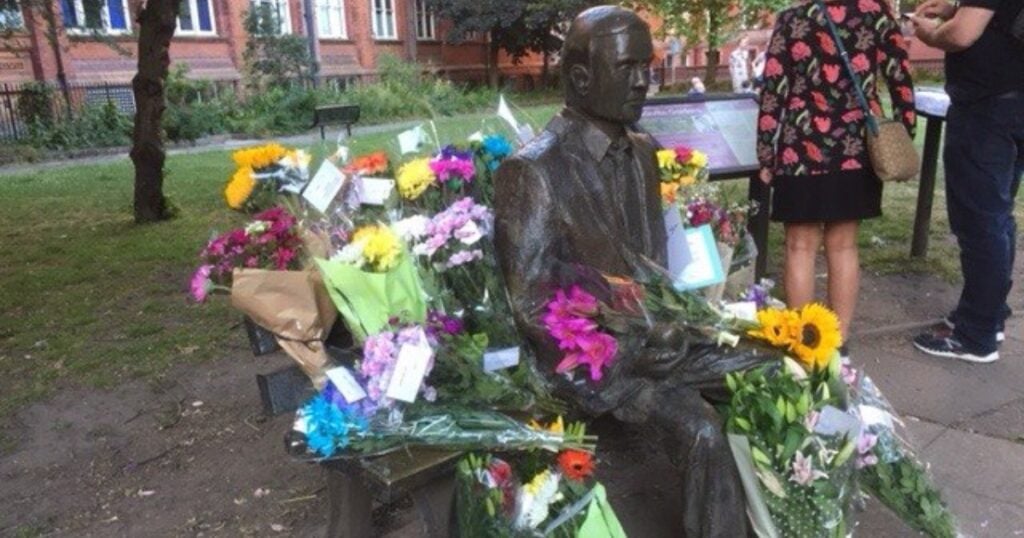
Expanding Turing's Law
Pardons are now available for anyone in the U.K. convicted for homosexual activities under previous British laws.
A new amendment to the nation's Police, Crime, Sentencing and Courts Bill broadens the range of pardon-eligible offenses to any charge related to consensual same-sex sexual activity. Previously only people in England and Wales convicted under nine specific since-repealed laws, including anti-sodomy measures, could apply for a pardon.
The pardon program is commonly referred to as Turing's Law, after famed British mathematician Alan Turing. Turing became famous for breaking the German Enigma code during World War II but was later chemically castrated by the state as punishment for homosexual activity.
“It is only right that where offenses have been abolished, convictions for consensual activity between same-sex partners should be disregarded too,” U.K. home secretary Priti Patel told PA Media. “I hope that expanding the pardons and disregards scheme will go some way to righting the wrongs of the past and to reassuring members of the LGBT community that Britain is one of the safest places in the world to call home.”
The expansion of the Turing Law's purview also focuses on those who died with similar convictions. The nation previously extended posthumous pardons to thousands of individuals convicted under the repealed laws in 2017, modeling the measure on Queen Elizabeth's posthumous pardon of Turing in 2013. Under the new amendment, anyone who passed away with charges related to consensual same-sex sexual activity previous to the laws' repeal will receive automatic pardons. That same action will be extended to anyone that died up to 12 months after the legal changes.
“Parliament Has a Duty”
House of Lords members Lord Michael Cashman and Lord Lexdon championed widening the scope of those eligible for pardons, with both advocating for the bill's expansion in 2021. “The disregard and pardon schemes in England and Wales are significantly flawed because they encompass only a small fraction of the laws that, over the decades and centuries, have immiserated the lives of gay and bisexual people,” Cashman said in November. Lexton also expressed displeasure at the specific focus of the disregard program, calling it “an affront to gay people.”
The House of Lords duo and University of York sociology Prof. Paul Johnson partnered to advocate for the new amendment and celebrated the news. “We have been pressing the government since 2016 to widen the disregard and pardon schemes through which individuals reputations can be fully restored. The government has now pledged to bring forward amendments to legislation which is currently before the Lords,” the trio said in a joint statement.
“Parliament has a duty to wipe away the terrible stains which they placed, quite wrongly, on the reputations of countless gay people over centuries,” they added. “In a matter of weeks, legislation will be in place to enable thousands of gay people to whom grave harm was done to wipe their records clean. We are delighted our long campaign will at last bring many gay people, both living and deceased, the restitution they deserve.”
Former Royal Air Force soldier David Bonney, who believes himself to be the last person jailed for being gay, told the BBC that pardoning affected individuals “could be sorted within a couple of years” thanks to the now-broadened bill. “They've got the records, they know who we are,” he added.
The U.K. decision spotlights the use of anti-sodomy legislation to effectively criminalize LGBTQ people as multiple legal challenges to similar laws in the U.S. remain ongoing. Lawsuits in Idaho, Montana and South Carolina challenging parameters of those laws are currently pending.
Pardon: Previously on Towleroad
Photo courtesy of Tess Reddington/Creative Commons



